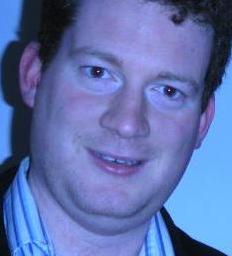






How to lose thirty kilos
Over the last two years (2003-2005) I've lost a lot of weight. In the hope that my experience might be useful to somebody, I'm making an account of how to achieve this available online. The most important thing to do is achieve control over your weight; once you can control your weight, you can use that control to change your weight to the level you desire.
Human beings depend on bodily processes which only work in a narrow temperature range, and energy is burnt or conserved keeping parts of the body the right temperature. Your body burns energy all the time, and you provide new sources of energy by eating and drinking. Energy sources can be stored, e.g. as fat. Where there's a discrepancy between the energy available from food you've eaten in the last day or so and the energy required, the difference must be made up by a change in temperature or a change in stored energy like fat. Unlike reptiles, the human body's internal thermometer affords little room to manoeuvre, so only small discrepancies can be resolved by changes in temperature; any large discrepancy between energy supply and demand must be resolved by changing how much energy is stored.
What this means in practice is that a small decrease or increase in how much you eat isn't going to affect your weight, it's going to make some almost imperceptible difference in your body temperature. To lose or put on weight, you need a large and long-term deficit or surplus of energy. A 500 calorie deficit, every day for a week, with no exercise whatsoever, should be enough for more or less any adult to lose weight. So how does one go about achieving that?
The first thing is to make sure you have control over your own food and drink consumption. If someone else can change your plans about when to eat and how much, then you lack the control over your life necessary to achieve control over your weight. If you operate by getting hungry and then eating some food which is available, or if you do plan actual meals but are prepared to change these plans at short notice (e.g., by agreeing to cancel them to eat/drink with friends), then controlling your weight is going to be much more difficult. Change these aspects of your life before trying to control your weight. If there's food lying about, so conveniently, whether it be in the chocolate bar dispensing machine at work, or in the pantry at home, just leave it alone if you didn't plan on eating it.
The next thing to do is to start measuring things: how much you consume per day, in calories, and how much you weigh. Count the calories you consume for a couple of months, to train your brain to do this intuitively; you ought to be able to know, to the nearest 500 calories, how much you've eaten since you woke up. At the same time as trying to learn to estimate your energy intake intuitively, start experimenting with reducing that intake. You'll quickly develop a preference for meals whose calorific content is trivial to determine (this is probably the one good thing about supermarket readymeals), and a horror of smorgasbords and other situations where portion sizes are ill-defined.
Say you've been averaging 2300 calories per day (you probably aren't fat enough to be bothering with this webpage then!), 1800 calories per day is probably enough to cause you to lose weight (2300 is a totally unrealistic figure for a woman, incidentally). So, starting with your next meal, plan out for the next fortnight a set of meals consistent with not consuming more than 1800 calories in any given day, and stick to it. If you overeat one day, just get back on the programme. Don't compensate by skimping on food the next day, and whatever you do, don't allow yourself to think that one deviation from the plan will compromise the efficacy of the whole enterprise, and therefore slacken off completely. What matters for your body is the overall pattern; occasional deviations one way or the other might have no long-term effect whatsoever.
If sticking to the calorie limit you chose isn't leading to a reduction in weight over a fortnight, then you've got to increase the energy deficit, by exercising more, or lowering the limit. Keep doing this until you find a limit which does, over time, lead to a reduction in weight (I presume anyone reading this wants to lose, as opposed to gain, weight). Exercise is just a way of cheating nature by giving you a larger daily calorie budget to play with for the same effect on your weight.
If you weigh yourself on the scales, what's being measured is your body, any clothes you're wearing, and the weight of all the temporary contents of your body: food, drink, urine and faeces. Over time, changes in the weight of the contents cancels out: there's never going to be more than two or three kilogrammes of stuff sloshing about inside you. Unfortunately, this changing component of your overall weight is larger than the day-to-day changes in weight effected by weight control, meaning they can only be seen over the timescale of about five or six days. The best you can do to counteract this is try always to weigh yourself naked at the same time of the day, after emptying your bladder. You weigh least in the morning after urinating, so not only does this help keep the measurements consistent, it's also psychologically most rewarding.
Once you've achieved control over your weight, then you can plan to reduce it, and keep it off. It's best to try to lose a stone at a time (that's 6.3kg for the metric-heads) and then maintain one's weight for a month or two before trying again.
The final thing which remains to be said is to ignore nutrition. Forget about eating a balanced diet with the right amount of all those things we're told we need. See? I don't even know the words for them. What matters is how much energy is in everything you consume, not whether it came from lipids or protein. Those are second-order considerations. A healthy, balanced diet is a luxury which people who are dangerously overweight can ill afford. I lost thirty kilogrammes without giving up cheeseburgers (with chips dipped in mayonnaise), chicken jalfrezi, treacle pudding, lager, wine, chocolate bars and all the rest.
This isn't an entirely happy story. Irrespective of how much I've eaten, I am basically always hungry. Were I to eat at all times when I felt hungry, I'd fill up and make myself sick, which is what used to happen, and why I once weighed over eighteen stone. Anyway, here are some photos of what I once looked like, showing the changes until a year or two ago.






